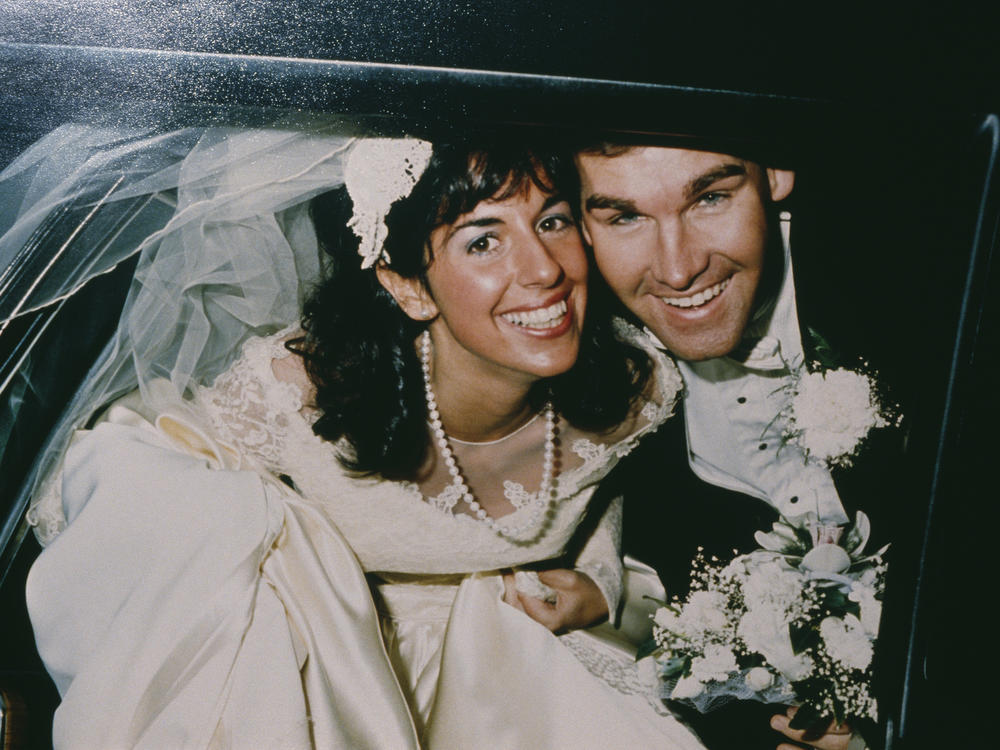Section Branding
Header Content
'Murder in Boston' is what a docuseries should look like
Primary Content
Monday night, HBO aired the first of three installments in its documentary series Murder in Boston: Roots, Rage & Reckoning. Directed by Jason Hehir (who made The Last Dance), it's about the October 1989 murder of Carol Stuart. The murder was originally reported by her husband, Charles, as a carjacking by a Black assailant in which they had both been shot. She died, as did the baby she was carrying. By January, Charles' brother confessed that he had assisted Charles in murdering his wife and that Charles' own injury was essentially a misdirect; the carjacker never existed. In the intervening months, a manhunt had resulted in the police stopping, searching and harassing large numbers of Black men in Boston, one of whom they even arrested. Charles Stuart identified him as the — as it turns out — fictional murderer, then took his own life shortly after his brother gave him up to the police.
There is an obvious way this series could have gone: exacting detail on the Stuarts, their families, how beautiful Carol was, how it all went wrong — on other words, on Charles' decision to kill her and his brother's decision to turn him in. Instead, it wisely focuses not on the murder itself, but on the police investigation, both its origins and the deep scars it left. The bulk of the first installment is spent on the history of segregation and racism in Boston, with particular focus on the ugly protests against busing as a way to desegregate public schools. It's a bit of a salutary bait-and-switch, seeming like another true-crime story, but really taking this case and using it as only one example of much broader problems. The result is far more satisfying and substantial.
The three-episode docuseries is a standard format by now, particularly on Netflix. That's how many episodes Netflix has of Bad Vegan and Escaping Twin Flames and Bad Surgeon. It's how many there are of Max's own Love Has Won. These often follow a three-act structure: the setup, the explosive events, the consequences and conclusions. Murder in Boston suggests what might be a better path for a series like this, which calls all the way back to Ezra Edelman's outstanding series O.J.: Made in America. That series, while it was longer, similarly used its long format to provide what is often missing from stories about true crime, or scandals, or headlines of the past: context.
Yes, it's possible to spend three episodes synthesizing what we know about events of the past, primarily for the benefit of people who either want to look back on them as familiar or want to learn about them because they weren't around the first time. But why set aside the benefit time can often provide, which is a chance to gain new perspective on familiar stories?
Journalists and civil rights leaders, and one retired police officer who was willing to talk — and who seems to have zero regrets about his role in the manhunt — speak to the ways the aftermath of this killing changed the city, how it echoes in conversations that still take place now, and how, in retrospect, biases and failures of imagination prevented a mostly white police apparatus from being suspicious about Stuart's story when plenty of Black residents never believed it for a minute. (For all this useful context, it also is undeniably an advantage to this series that the old COPS-like show Rescue 911 was filming with Boston emergency medical services on the night of the murder, which means there is much more footage than usual of the crime scene, of Charles Stuart being loaded into the ambulance and being treated in the hospital, and of him muttering about the supposed Black carjacker.)
This is what a docuseries should look like. Events are covered efficiently; context is given room to breathe, to occupy the space it needs. A lot of such projects are disposable and sensational, offering less light than heat. But this is one that gets the balance right.
This piece also appeared in NPR's Pop Culture Happy Hour newsletter. Sign up for the newsletter so you don't miss the next one, plus get weekly recommendations about what's making us happy.
Listen to Pop Culture Happy Hour on Apple Podcasts and Spotify.
Copyright 2023 NPR. To see more, visit https://www.npr.org.

